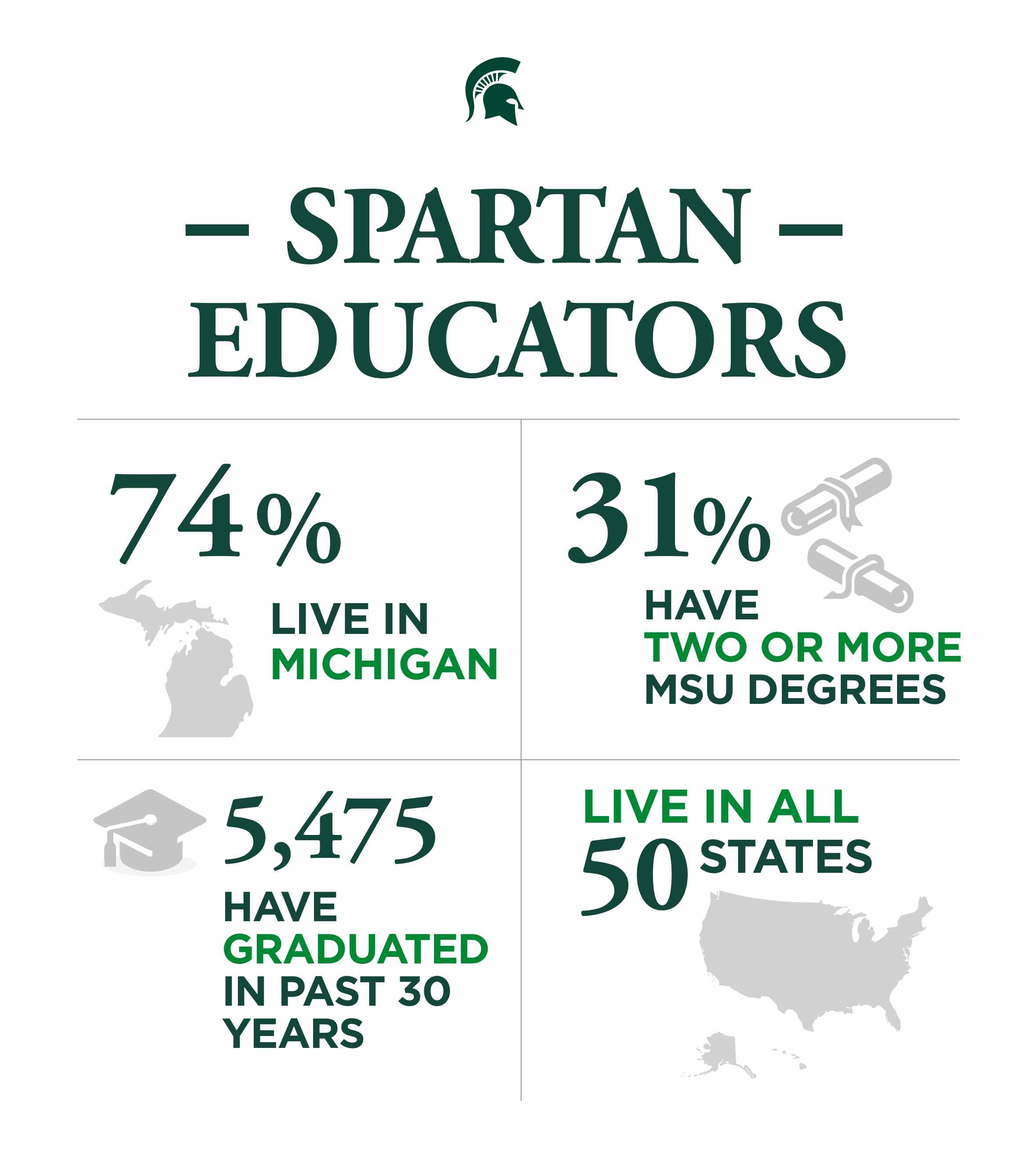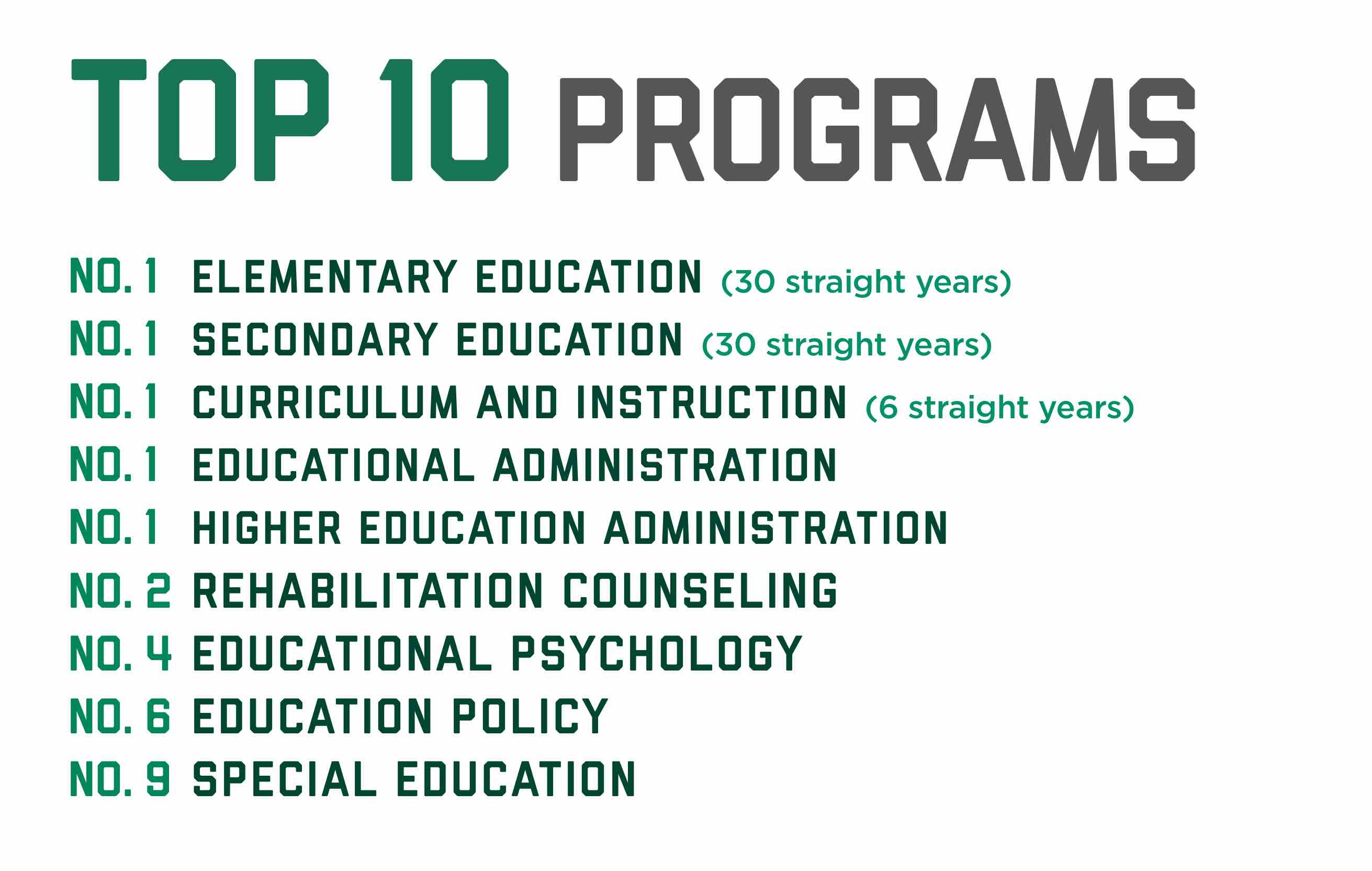Shaping the future of teaching
College of Education faculty are integral to preparing tomorrow’s teachers. These world-renowned scholars — 31% of whom earned at least one degree from the college — often teach at the undergraduate and graduate levels. They also oversee collaborative research projects with students and graduates.
Learn more about the impact Spartan educators make in K-12 classrooms across Michigan through the
Ingrained campaign.
This research changes the way educators think about and deliver instruction. For example, several projects led by College of Education faculty focus on improving learning environments for students studying science. A recently completed $5.5 million grant developed ways to boost students’ engagement by training teachers nationwide on how to embed student motivation strategies in their lesson plans.
A $2.2 million grant is creating free K-2 science literacy lessons to help kids learn to love science. In 2023, MSU faculty launched a $7.7 million grant project to reimagine chemistry and physics lessons for high schoolers in rural environments.
These examples are a selection of ways MSU research is impacting PK-12 schools nationwide. There are dozens of other examples related to mathematics, languages, cultures and more.
“The College of Education prepares you to step into a classroom with the confidence and tools you need to give students what they need for their educational journey,” says Candice Jackson, 2023 Michigan Teacher of the Year.
College of Education faculty are recognized leaders in the field. From 2015-20, college scholars edited the Journal of Teacher Education, one of the most widely read journals in the field. In 2017, MSU launched EPIC, which has since garnered over $20 million in funding. In 2020, MSU became the institutional host for the University Council of Educational Administration, a national organization focused on enhancing educational leadership through research and training.
Peers also recognize MSU faculty for their contributions. Eight current faculty are American Educational Research Association Fellows, including three who received this designation in 2024. Twelve alums hold this top honor in the field of education. Beyond the college’s body of research, its offices and centers also cultivate personalized partnerships and create programming and workshops to expand knowledge with schools, community organizations, nonprofits and more.
At the forefront of all this work is the college’s commitment to diversity, equity and inclusion. In 2016, the college began offering professional education to help schools, colleges and other organizations achieve more equitable and inclusive cultures. The initiative has since grown into the Office of Diversity, Inclusion and Community Partnerships led by Associate Dean Terry Flennaugh, who heads several supportive programming options and student group activities for current and prospective students, with the goal of helping all Spartans feel supported in their learning journeys.
“This college’s diversity programming has allowed me to enter college with the needed support to start, and I know I will continue receiving support to help me pursue my college degree,” says Aja McAllum, a Teacher Preparation Program student. “From job opportunities and making me aware of programs and events to attend, to introducing me to research and the chance to network and meet influential people, the DICP office has been a huge help.”






